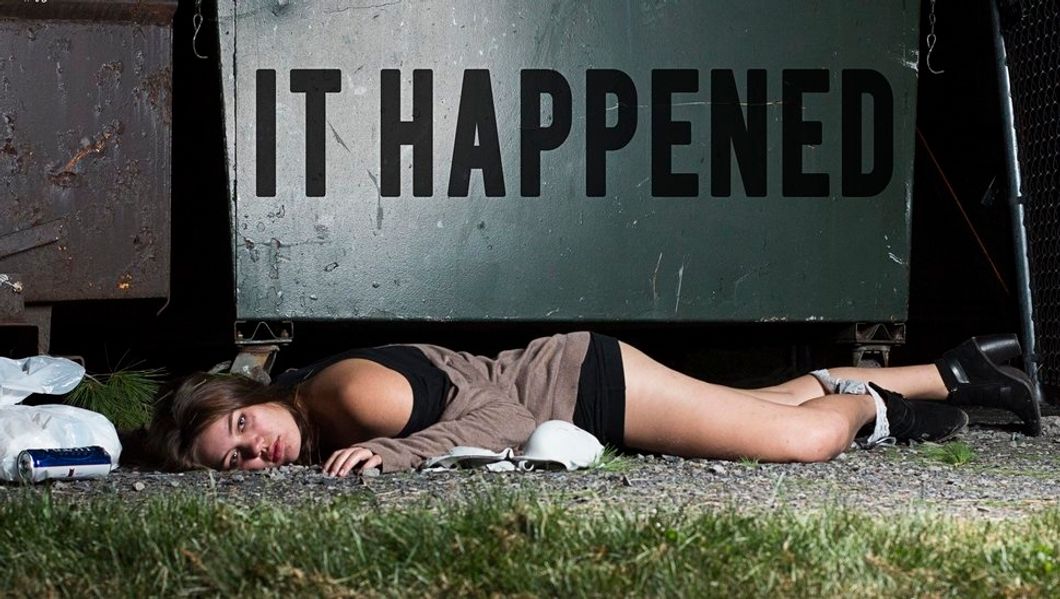There has been tons of controversy and buzz surrounding the words "rape" and "sexual assault." We've heard from both sides of the political spectrum on the issue of rape. The fear women have when leaving work or taking public transportation late at night. Women scared to wear what they feel confident in for they fear that they will be sexually assaulted or harassed. Men should be concerned about these women because, for all you know, it could be your mother, sister, daughter or woman in your life.
Hell, it could be you. One in 10 men is sexually assaulted.
Then, there's the group of people that claim that women who "cry rape" can ruin a man's reputation. The discussion was sparked by the recent appointment of Brett Kavanaugh after his trial where he was cleared of all rape charges. All politics aside, it's important for society to realize the facts of sexual assault. It's not just a women's problem. It's a human problem.
Every 98 seconds, somewhere in America, a citizen is sexually assaulted.
It's scary to imagine that almost every minute, someone out there is being sexually assaulted. Our country has divided itself to the point where we no longer concern ourselves with basic human issues — we concern ourselves with liberal or conservative issues. And it's time we've stopped thinking in that dangerous mindset.
No matter what your stance on the Brett Kavanaugh case or rape culture in general is, it's time to know the facts. Ages 12-34 are the highest risk years for sexual assault. These are our mothers, daughters, fathers, sons, cousins, best friends. Sexual assault does not discriminate upon your age, color or sex. Sexual assault takes its victims by force no matter who you are. Sadly, it's our mothers and daughters that are at higher risk of sexual assault. One in six women is sexually assaulted between the ages of 12-34. Keep in mind, though, that these statistics abandon a few people.
This importance of the #WhyIDidn'tReport movement is monumental for American society.
It brings light to those men and women who have had their voices silenced by their attackers or fear. There are men and women among us who have been sexually assaulted that we don't know about, mostly because they were too scared to report their rapist. Just like Dr. Ford with the Kavanaugh case, these people are scared that they won't be believed or that their sexual assault report will be viewed as "tainting the reputation" of their attacker.
It's time for our society to move towards an "I believe you" kind of culture. Nobody is screaming to lock up every man accused of sexual assault, but maybe it's time to look at the facts (if they didn't do it, they should have nothing to worry about). As I read through the countless news stories from both sides of the argument, a question came to my mind:
What do we do as a society to prevent sexual assault?
What do we do? It's obviously a problem if someone in America is being sexually assaulted every single minute. Can our government do more to prevent sexual assault? Or is it time for society to stop electing attackers into the White House and speak up about Supreme Court nominees? My answer moves towards society.
As a representative democracy, our ideologies are represented by those we elect. And right now, I'm scared of American morals. We've elected a publically announced sexual assault attacker into one of the most powerful positions in our government.
How do we stop this? We start talking about sexual assault.
It's time for us to stop letting sexual assault hide in the shadows, like when a Kent State fraternity displayed a banner alluding to the prevention of sexual assault, and the campus commanded the brotherhood to take it down. Commendably, the brothers didn't — they kept their voices loud and constant.
It's time for America to start believing the women and men that step forward with their sexual assault cases, no matter age, color or background. It's time for us to close our mouths and open our ears to hear survivors stories in order to educate ourselves on the issue. It's time for us to stop teaching girls to cover themselves up and to teach boys not to rape. The perpetuation of rape culture is so prevalent in our country that it's almost become hard to identify. But, if we start viewing boys and girls of all races and ages on an equal level and respectability, soon these problems will begin to fade. We need to stop looking at sexual assault as a "they" problem and start viewing it as a "me" problem.








 Photo by
Photo by 




